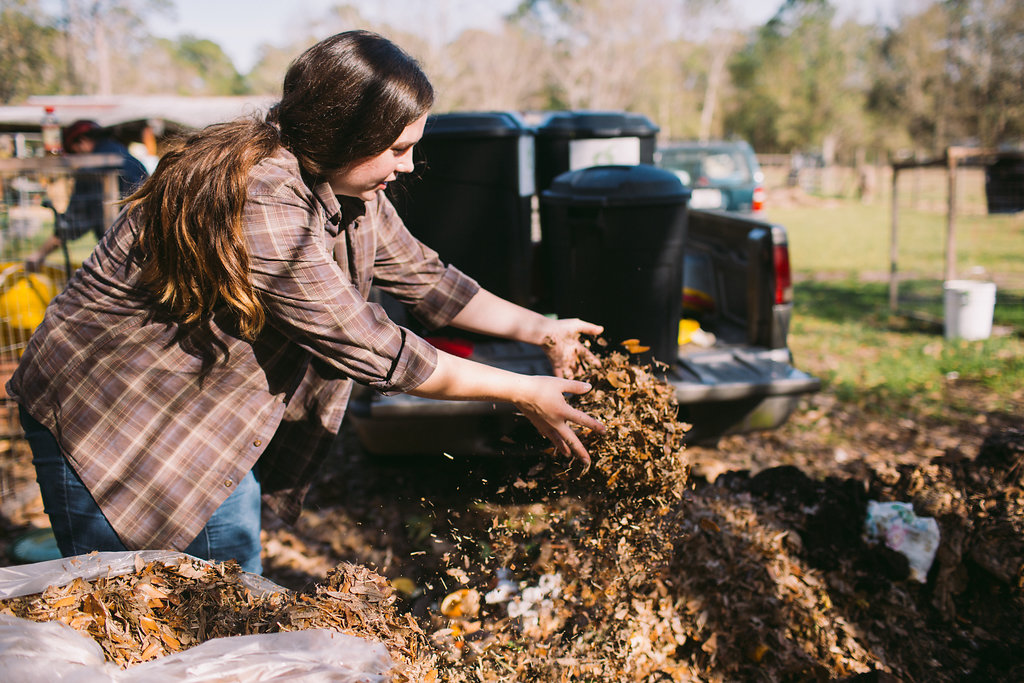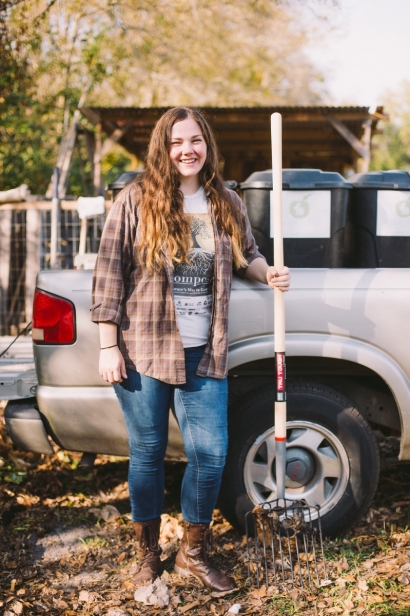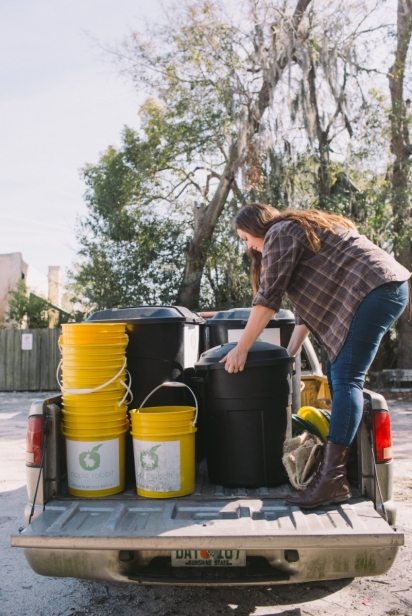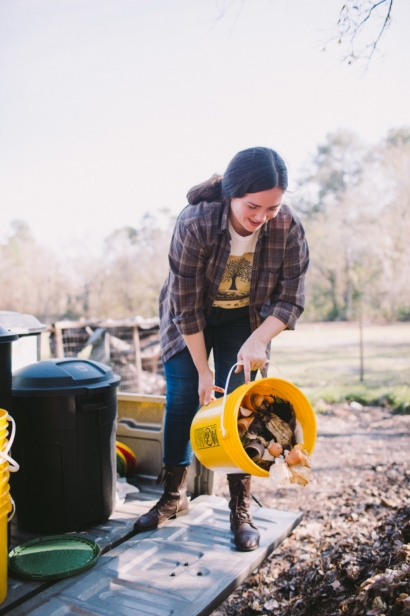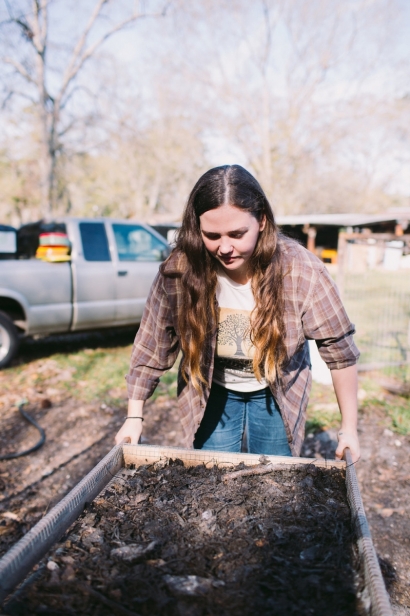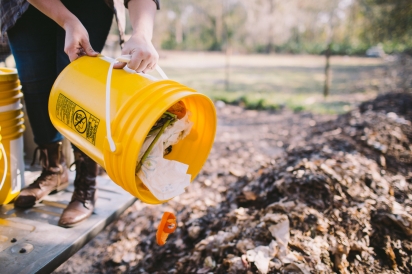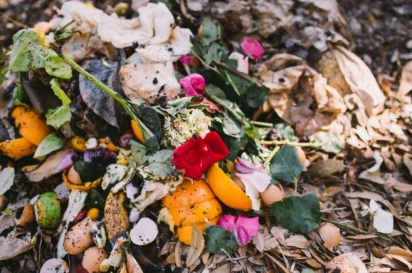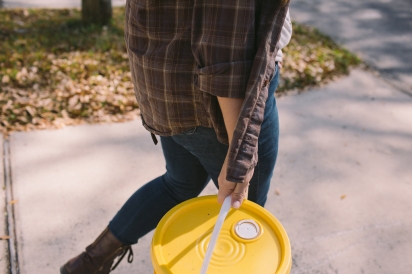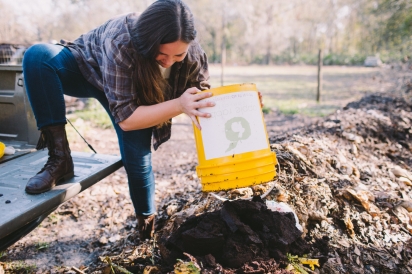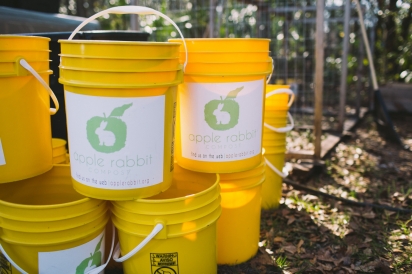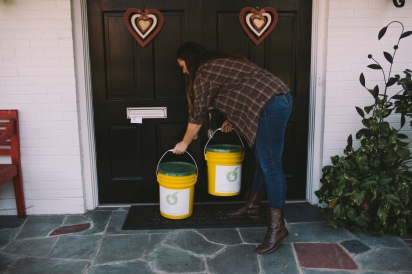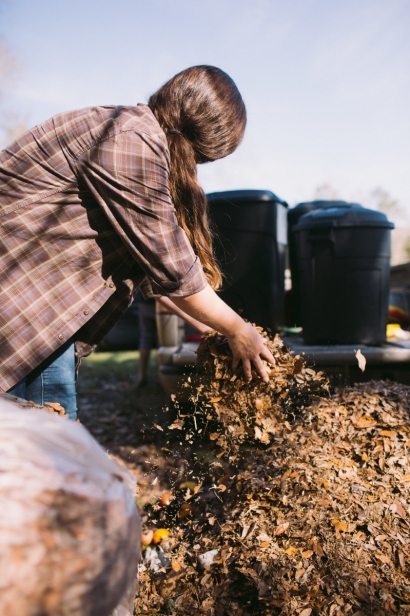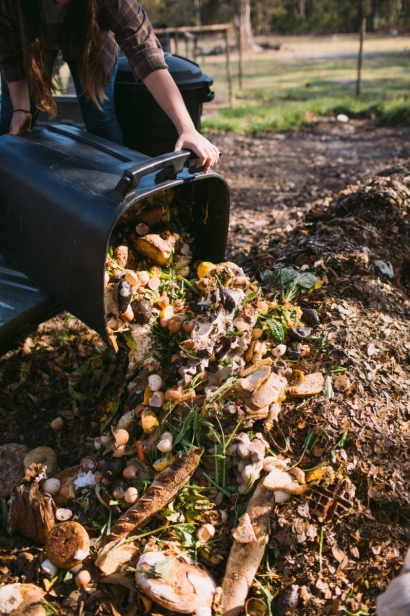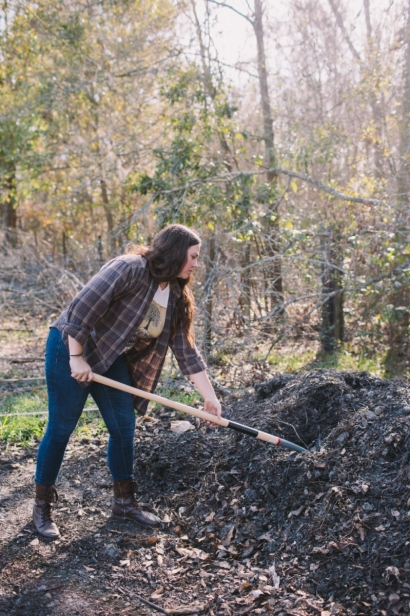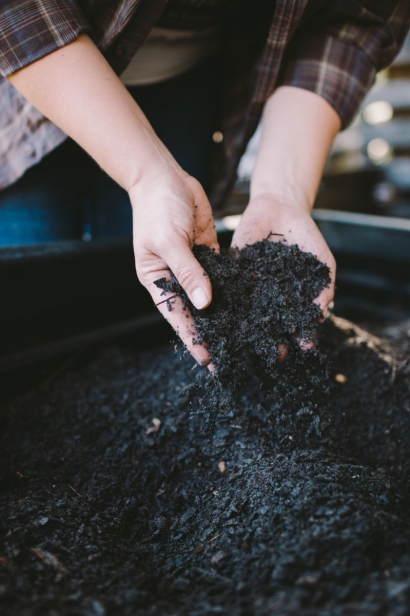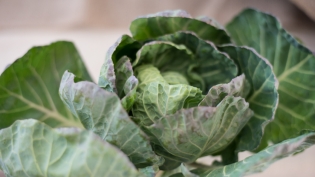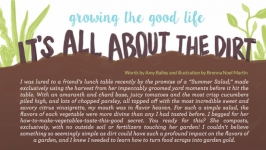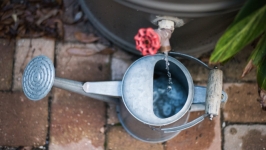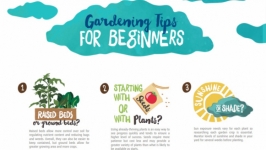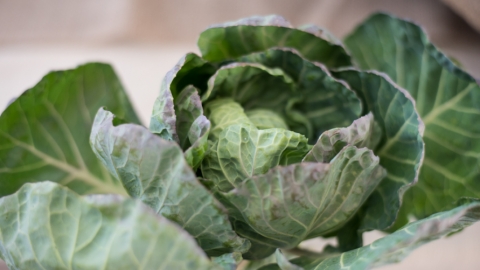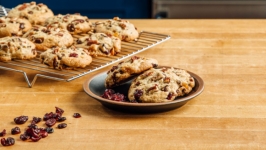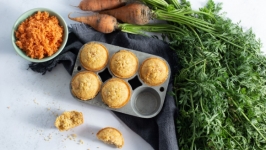Composting: New Life for Leftovers
Think those extra bits of food you leave on your plate at a restaurant, or those slightly blemished veggies you toss from your fridge don't have an impact on the environment? Think again.
According to the Environmental Protection Agency, food waste that goes to landfills breaks down anaerobically and produces methane, which is 21 times more potent than CO2 as a greenhouse gas, and in the U.S., it's becoming a significant ecological problem. Additionally, wasted food is an economic concern. In the restaurant world, reducing food waste is a priority, given its impact on profitability and the bottom line. Yet even those eateries which plan menus based on total utilization (that is, using every part of an ingredient, such as carrots and carrot tops) deal with the reality of food scraps and unused surplus heading to the landfill.
Such was the situation Tiffany Bess found when she started work managing a local restaurant in 2014. Having assessed their operations over time, Bess took steps to change their practices and pursued alternative ways to deal with scraps. When initial searches for an organic waste recycler proved futile, Bess launched her own in-house composting initiative. A few years later, her passion propelled her into a full-time business pursuit.
As the owner of Apple Rabbit Compost, Bess collects food scraps for a small but growing number of residential and commercial customers, including Sun-Ray Cinema, Southern Roots Filling Station and Community Loaves.
Throughout Northeast Florida, efforts to compost and help reduce waste are largely independent initiatives, as there is no policy mandating reduction of food going into landfills — for now. Some advocates say they believe the region shows promise for more widespread progress.
“The missed opportunities to divert food from landfills is something to be concerned about,” says Laureen Husband, who is a member of the Duval County Food Policy Council and the Florida Food Policy Council. “The Florida Food Policy Council is looking to identify opportunities for small farms, businesses and individuals like you and I to prevent food from being discarded into a landfill and otherwise use it to replenish the earth to make more healthy food.”
Composting is a natural way of recycling organic matter, and often includes grass clippings, coffee grounds and leftover vegetable scraps. The result is a nutrient rich, dark soil amendment with myriad benefits. It promotes soil microbes that aid plant growth, helps balance the soil’s pH level, reduces pests and otherwise fosters a more sustainable ecosystem.
Husband, who has spent years working in the community health sector in Northeast Florida, says she is not aware of any government-led initiatives to divert food scraps from landfills in any of Northeast Florida’s counties.
Joseph England, chair of the policy and issues committee for the Florida Food Policy Council, said many local-level composting efforts operate outside of state regulations. Currently, food is characterized as solid waste by state statute; therefore, anyone transporting food waste — even small composting efforts — is required to be certified as a solid waste hauler by the state.
Even if official changes are made at the state level, Florida still lacks facilities that can process food, either though composting or anaerobic digestion, England said. The lack of infrastructure and widespread public support haven’t deterred many Northeast Florida food-related businesses from cultivating their own ingenuity.
GRASSROOTS COMPOSTING
Shelby Stec of St. Augustine launched her commercial and residential composting business, Dog Day Gardens, after a search for quality, local compost for her nursery turned up short. She partners with a number of neighboring businesses, including Diane’s Natural Market, Moonbooch, The Kookaburra, Old City Brew and The Hyppo Gourmet Ice Pops.
“So at The Hyppo, for example, we give them a big 34-gallon trash can, and they fill that a couple times a week,” Stec says. “I comfortably collect a couple hundred pounds of food scraps that otherwise would go into a landfill.”
Tim Armstrong maintains an impressive composting initiative at both his Jacksonville farm — Eat Your Yard Jax — and at the North Florida School of Special Education. The school uses a fourbin system to compost micro-greens, wheatgrass and garden scraps. The culinary program’s other food scraps — potato peelings, squash innards and pineapple — are processed through worm composting.
“The rich compost is sprinkled into the school’s garden soil mix,” he says. “If we’re creating marmalade and have a lot of citrus, I’ll keep a separate pile to process at my farm for my blueberries. Blueberries love acidic compost.”
When food is no longer saleable but still in-date, Native Sun repurposes items into food ingredients in its food service departments (think: a perfectly edible, but slightly blemished, apple) or distributes it to local food banks, says Meghan Fiveash, community relations manager for Native Sun Natural Foods Market. If the food is inedible, but is organic material that is not meat, fat, grease, bones or dairy, staffers place it into a compost pick-up pile for local gardeners to collect.
“As the Bold New City, we have the opportunity to find new ways to progress these (composting and food waste) initiatives in our hometown,” Fiveash says.
Commissioning the city and local municipalities to put together a short-term plan to integrate education and industrial composting facilities is a logical entry point for advancing these causes, she adds.
To help disseminate information about how to recycle food waste, the USDA, EPA and nearly a dozen other public and private partners recently unveiled furtherwithfood.org, a national resource hub that offers ways for cities and counties to share information and best practices on food loss and waste solutions.
“Across the nation, cities and states such as Seattle, San Francisco and Massachusetts no longer allow organics, or food, in landfills,” says Elise Golan, the USDA’s director for sustainable development. “A number of local governments are stepping in to start initiatives that help households and businesses throughout the U.S tackle this problem.”
In the meantime, local level efforts continue to drive public awareness and support for food composting. During a cool, damp January morning at Riverside Arts Market in downtown Jacksonville, Bess stood beside a couple of stacks of empty five-gallon compost buckets, waiting to exchange them for full ones from her urban customers.
“We as a region are experiencing a lot of momentum recently with composting and food waste awareness, and it feels good to be helping to build a movement.”


